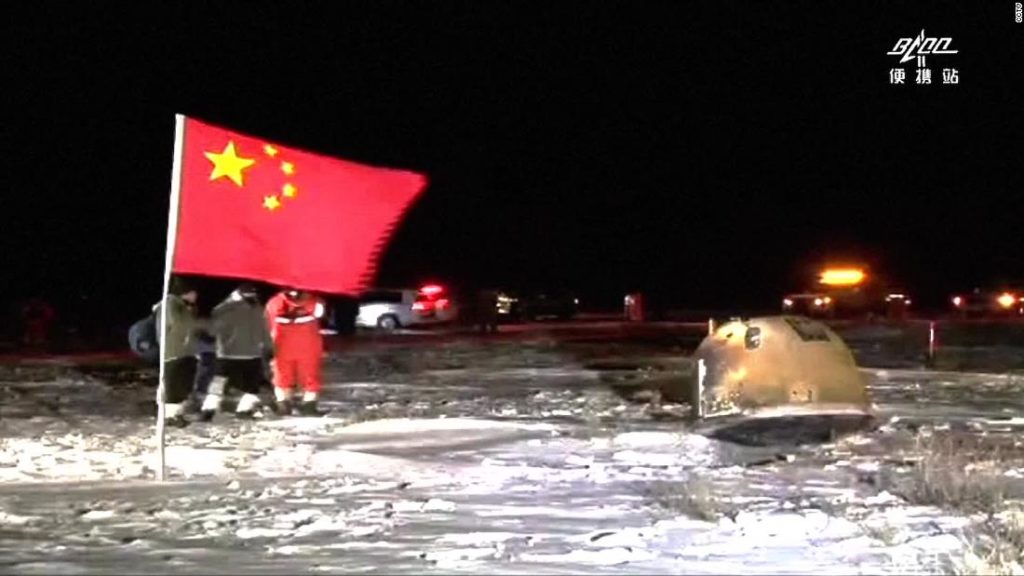The samples were retrieved from a previously unvisited area of the moon, and are also the first samples to be collected by any country since the 1970s.
The returning capsule landed in Siziwang Banner, which lies north of China’s Inner Mongolia Autonomous Region, just before 2 a.m. Thursday Beijing time (1 p.m. ET Wednesday), according to China’s National Space Administration (CNSA).
The probe, named after the ancient Chinese goddess of the moon, first took off from the Wenchang Spacecraft Launch Site in Hainan on November 24.
It landed on the near side of the moon on December 1, on a massive lava plain known as Oceanus Procellarum, or “Ocean of Storms.” According to NASA, this large dark spot could be a scar from a giant cosmic impact that created an ancient sea of magma.
The samples from this region could help scientists understand more about the moon’s origins and foundations — and set the foundation for more complex sample retrieval missions in the future, potentially on other planets.
Chinese scientists are already drawing up plans for future lunar exploration, said Pei — including a project to construct a scientific research station on the moon.
“We hope to cooperate with other countries to build the international lunar scientific research station, which could provide a shared platform for lunar scientific exploration and technological experiments,” Pei said, according to Xinhua.
China’s achievement follows the United States and the Soviet Union, which both collected lunar samples decades ago.
In the Apollo programme, which first put men on the moon, the United States landed 12 astronauts over six flights from 1969 to 1972, bringing back 382 kg (842 pounds) of rocks and soil.
The Soviet Union deployed three successful robotic sample return missions in the 1970s. The last, the Luna 24, retrieved 170.1 grams (6 ounces) of samples in 1976 from Mare Crisium, or “Sea of Crises.”
You may also like
-
UK coronavirus variant has been reported in 86 countries, WHO says
-
NASA technology can help save whale sharks says Australian marine biologist and ECOCEAN founder, Brad Norman
-
California Twentynine Palms: Explosives are missing from the nation’s largest Marine Corps base and an investigation is underway
-
Trump unhappy with his impeachment attorney’s performance, sources say
-
Lunar New Year 2021: Ushering in the Year of the Ox

